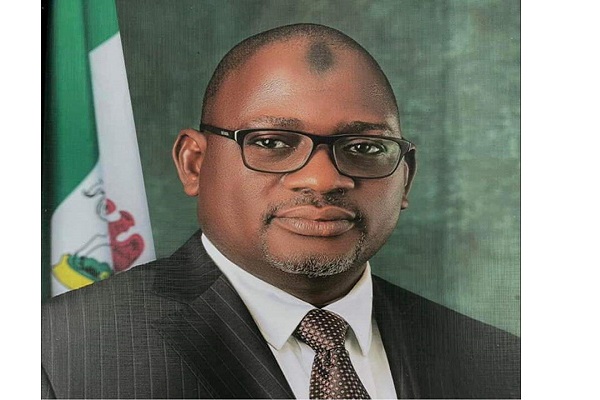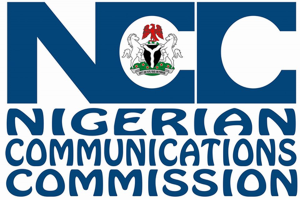OPINION
By Sylvanus Okpete
Muhammed Nami is a core professional taxman. For over 30 years he was neck-deep in the private sector plying his trade as an accountant, management consultant and tax administrator before he was appointed the Executive Chairman of the Federal Inland Revenue Service (FIRS).
By the time President Muhammadu Buhari brought him on board FIRS in late December 2019, Nami had logged up over three decades of practical, professional experience in auditing, tax management, financial advisory and management services to clients in the banking, manufacturing services and public sectors as well as non-profit organizations.
The decision by the former President to make him the chief executive officer of the country’s foremost revenue agency couldn’t have been better thought out. FIRS, the agency responsible for assessing, collecting and accounting for tax and other revenues accruing to the Federal Government of Nigeria, needed a new breathe of fresh air, new direction and renewed vitality.
Nami was called in to take over the job of building tax revenue, which became critical in the face of disappointing oil earnings. A significant increase in tax revenue was needed to reduce widening fiscal gap as oil prices faltered and debt servicing requirements expanded.
When Nami arrived FIRS, he implemented a grand policy reform and institutional re-organisation at FIRS and rolled out agenda of tax-driven solutions to Nigeria’s earnings volatility. The agenda was driven by application of technological innovations in the tax administrative machinery. He set tough goals for himself at FIRS – which were meant to take Nigeria’s tax-to-GDP ratio from six percent to the World Bank-recommended threshold of 15 percent.
The reforms began to manifest almost immediately in spite of the grim shadow of COVID-19 on the polity with its negative consequences on the economy. In Nam’s first year, when the pandemic held the world in its grips, when most organizations shut down, the agency was still able to achieve its N5.07 trillion tax collection target, raking in N4.95 trillion.
And with COVID-19 not yet over in 2021 FIRS overshot its N6.401trillion target for the year. It collected a total of N6.405 trillion in both oil (N2.008 trillion) and non-oil (N4.396 trillion) revenues as against a target of N6.401 trillion.
What this meant was that the non-oil sector contributed 68.64% of the total collection in 2021, while the oil sector’s contribution was 31.36% of total collection.

In 2022, the oil sector did better as FIRS broke the N10 trillion mark by contributing 41% of the total tax collection for the fiscal year with an unprecedented figure of N4.09 trillion to N5.96 trillion from the non-oil sector according to the year’s performance update report.
In 2023, the N5.5 trillion total tax revenue collection between January and June was more than the N4.95trillion the FIRS collected in the entire 2020 fiscal year. It is only N900 billion less than the N6.4 trillion collected in the whole of 2021.
It is the highest ever tax collection by the service for the first six months of a fiscal year. The tax agency was convinced that it would better that number in the last six months of 2023. And considering the performance trend since 2020, it would be difficult for anyone to bet against the agency exceeding that feat at the end of the fiscal year.
It was in that upbeat mood at FIRS that Nami was asked to proceed on his terminal leave, over three months to the end of his four-year term. But, for him, that mood was dampened in less than a month out of office. Reports surfaced in the media, led by TheCable, an online news platform, accusing Nami of approving N11 billion “suspicious payments” to several contractors and consultants “after been (sic) sacked by President Bola Tinubu.” Nami has since personally issued a statement in which he defended himself against the specific allegations.
He said the entire story was sensationally written with mischief that took the ordinary events of his work out of context with intent to tarnish his image. “Fundamentally, it is important to note that no payment was made by the Service after the announcement of my pre-retirement leave as claimed by this story. An approval for payment in the Service is one step of a journey to payment.”
He explained that all decisions reached and extant liabilities/commitments of the Service during his stay in office were contained in the handover notes he made available to his successor, Mr. Zacch Adedeji. “He is fully briefed on everything. For clarity, the items listed in TheCable newspaper report were part of the N16 billion outstanding commitments contained in our handover note.”
“The N5 billion paid to Joint Tax Board was paid to fund the activities of Presidential Committee on Tax and Fiscal Policy Reforms two months before I left office. It was paid after we received a letter to that effect from the office of Mr. President signed by Zacch Adedeji himself.”
He also dispelled attempts by the news reports to portray a picture that he hurriedly left the country on September 16th after these so-called “suspicious approvals” were made. “Again, nothing can be further from the truth. If I traveled out of the country on the 16th of September, how then did I attend the handover ceremony with Mr. Zacch on the afternoon of Monday 18th September 2023? That handover ceremony was covered by the media, and can be cross-checked.”
Nami said that every decision he made during his time in office was within the ambit of the law and within the lawful powers he exercised then as Executive Chairman.
“I inherited only N1.4 billion in the purse of the FIRS when I assumed office. I left N129 billion in the purse of the Service when I left,” he concluded.
Although it is generally known that every accused person would normally have a defence until proven guilty, the case of Nami is significantly different. Apparently in their haste to nail him, for whatever reason, the media and their sponsors laboured to patch the allegations together. That is why it was easy for Nami to concisely, factually and convincingly debunk them. Besides, there are several other issues that question the credibility of the allegations against the former FIRS chief executive.
The first credibility test which the reports failed was that Nami was sacked by President Tinubu. This manifests intent to sensationalize. Secondly, the reports were based on “suspicious payments.” Suspicions can only form the basis for investigation, subjected to confirmation but never candidate for publication. In this instance, there was no evidence of any attempt to report to the suspicious payments to the new leadership of FIRS for investigation and confirmation of any wrongdoing. This reduces the allegations to mere speculations with the peddlers ending up exposing their ignorance by reporting matters, incidents and facts the new Executive Chairman was personally privy to. Thirdly, and relatedly, no attempt was made to hear from Mr. Nami to get his side of the story. This is very unprofessional and weakens the value of the allegations.
Also, the implied suggestion in the allegations that a Chief Executive Officer of FIRS can successfully and validly approve payments worth a whopping N11billion after leaving office places a big question mark on the financial and administrative controls, processes and procedures of the country’s apex revenue collection agency. It is simply unrealistic and incredible that such a thing can happen.
The inference which can be made from all the allegations put together is that the presidential directive to proceed on terminal leave caught Mr. Nami unawares, forcing him to the desperation of signing those approvals he had neglected to do while in office. It can also be inferred that Mr. Nami harboured personal percuniary motives in allegedly approving payments after his exit from office.
However, it is reasonable to believe that Mr. Nami is familiar with the Nigerian tradition in which changes in political leadership trigger changes in headship of key or strategic positions like FIRS irrespective of statutory term specifications. He, too, was a beneficiary of that tradition when Buhari, after his reelection in 2019, removed Mr. Babatunde Fowler as Executive Chairman of FIRS and replaced him with Nami. That being so, Nami must have anticipated the likelihood of his exit with President Tinubu’s inauguration on May 29. That means if he had nursed any such corruptive intentions he had all the time in the world to grant the alleged approvals before the bell sounded for him to leave in September.
The truth is that there are no angels in our world today. Nami is definitely not one. But what can be said for sure, considering his rich personal and professional pedigree and antecedents, is that he has served his country diligently, meritoriously, professionally, transparently and with distinction. The least he would expect in return from his country and countrymen, post FIRS, is absolute rest of mind to pursue other endeavours or take a deserved rest with his hard-earned reputation intact.






